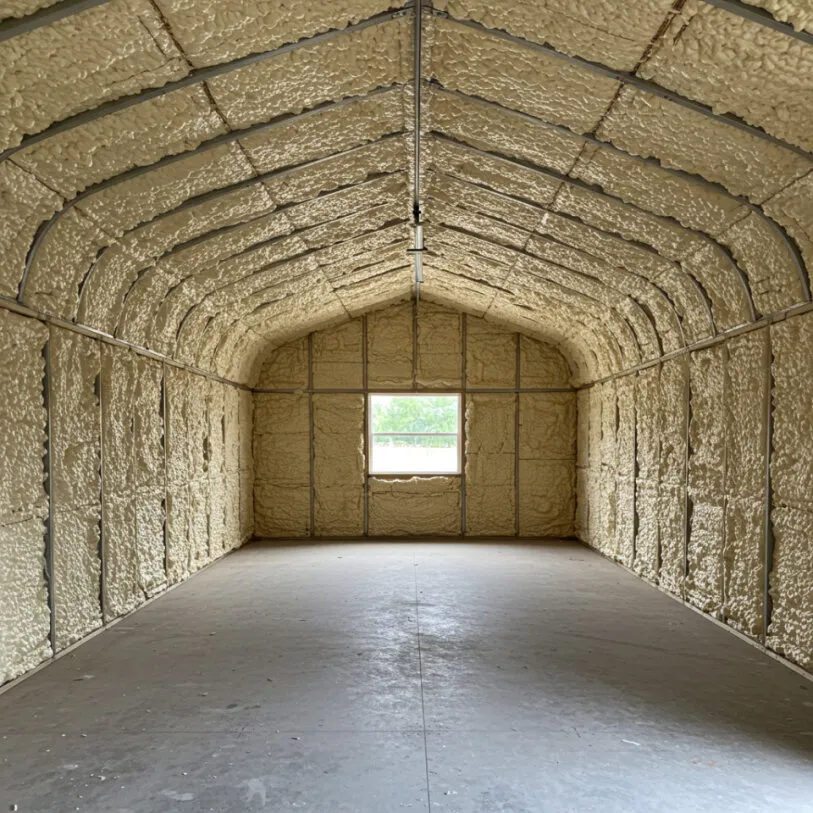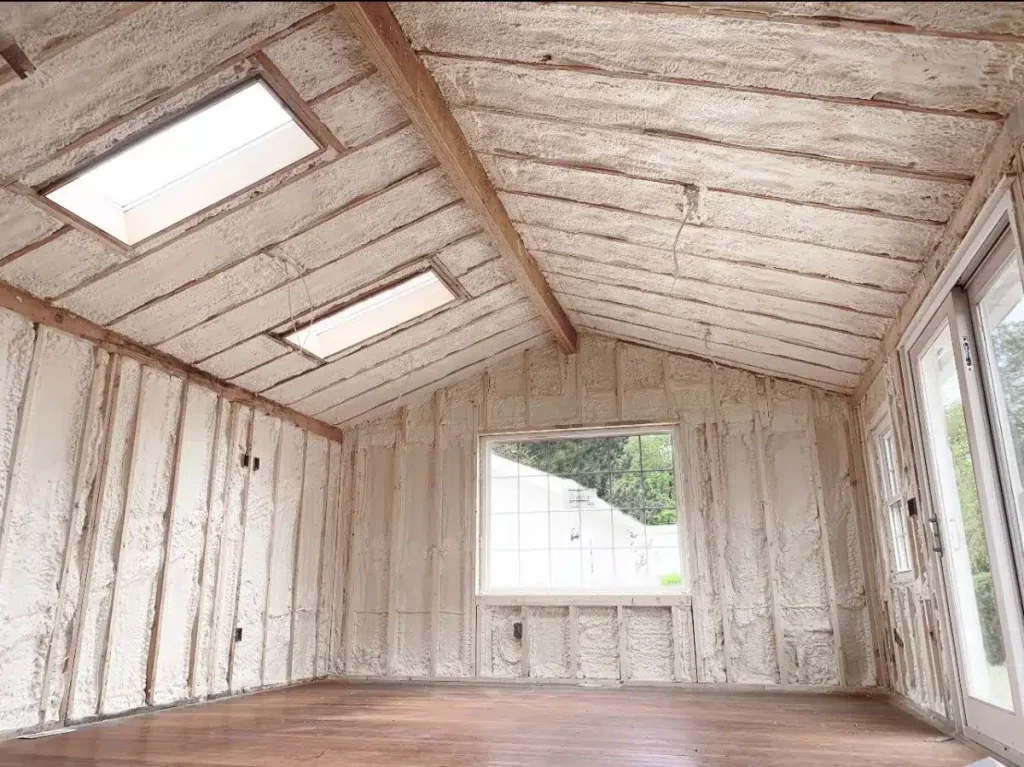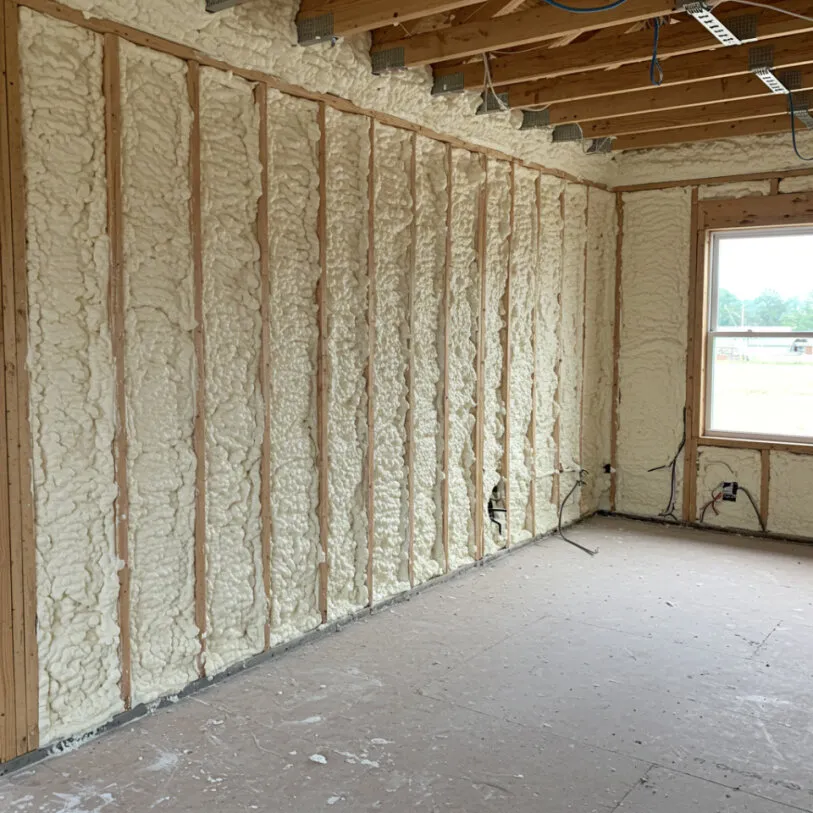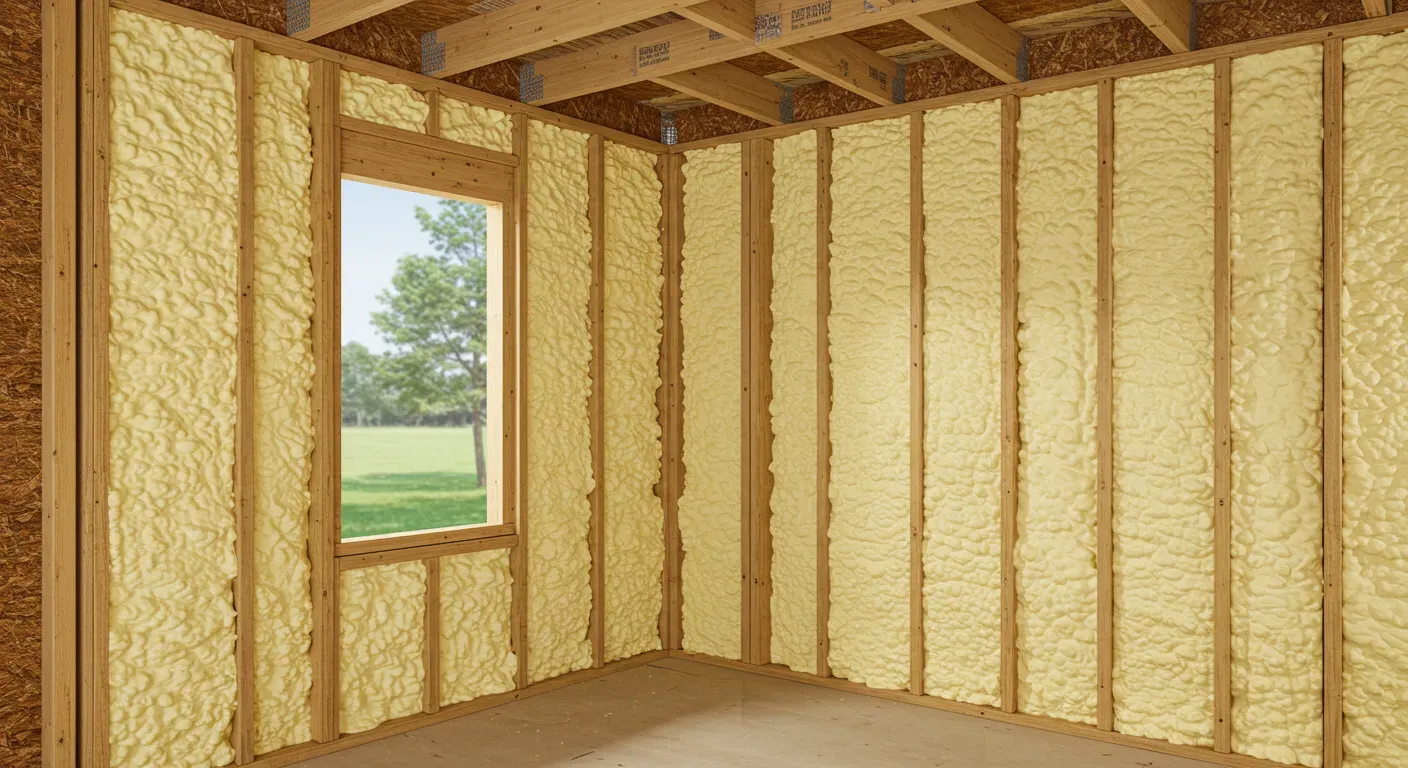

If you’ve ever considered upgrading your home’s insulation, there’s a good chance you’ve run into some debates—especially around spray foam. One question we hear all the time:
“Is this going to hurt my home’s value if I sell later?”
The short answer? Not necessarily. In many cases, spray foam insulation can actually add to your home’s value—but only if it’s installed properly and fits the home’s overall structure and design.
Let’s look at when spray foam helps, when it can cause problems, and how to make sure you’re adding long-term value instead of trouble.
When people are shopping for a home, they’re looking for more than curb appeal. They want comfort, low maintenance, and energy efficiency. Things like drafty rooms, sky-high utility bills, or signs of poor workmanship are instant turnoffs.
That’s why insulation plays a bigger role than you might think. A properly insulated home feels solid and performs well—and spray foam does both, if used the right way.
Let’s clear the air. Spray foam doesn’t automatically hurt your home’s resale value.
What matters is how it was applied, where, and by whom.
Here’s where problems tend to pop up:
These issues aren’t the foam’s fault—they’re usually the result of poor planning or unqualified installers. And yes, that can make buyers nervous.
If the job is done right, spray foam can be a big plus—especially in today’s energy-conscious market.
✅ Lower energy bills
✅ Quieter living spaces
✅ Better air quality from reduced air leaks
✅ Long-lasting materials that won’t settle or sag over time
According to the Appraisal Institute, homes with energy-efficient upgrades can sell for up to 6% more.
Many buyers see spray foam as an upgrade—just like a new roof or updated HVAC. They like knowing the house has been improved in a smart, lasting way.
Here’s the honest truth: Spray foam can raise red flags if certain things are overlooked.
That’s why it’s important to save everything—photos, specs, receipts, energy bill comparisons, even the installer’s contact info.
Ask around and you’ll hear mixed opinions. Some agents love spray foam. Others are hesitant, mostly because buyers don’t always understand it.
Home inspectors want clarity. They want to see that air flow, wiring, and moisture control were all accounted for. If they find a sealed attic with no explanation, that’s when questions start.
But when everything is documented and explained? It’s rarely an issue.
You don’t have to rip anything out. Just be ready to answer the kinds of questions that buyers, agents, and inspectors may have.
Here’s what helps:
If you’re building new, foam is often seen as a premium upgrade—and builders are planning for it from day one.
But in retrofits, things can get tricky. Here’s where it depends:
None of this is bad—it just requires a bit of communication.
| Factor | Helps Value | Can Hurt Value |
|---|---|---|
| Energy Bills | Cuts heating & cooling costs | Not obvious unless you show savings |
| Installation Quality | Adds longevity and comfort | Sloppy installs cause concern |
| Home Type | Ideal for new builds | Older homes need custom planning |
| Ventilation Plan | Safer, smarter indoor environment | Can raise issues if ignored |
| Buyer Understanding | Upgrade when explained clearly | Hesitation if unfamiliar |
Only if it causes confusion or was installed without proper planning. In most cases, it doesn’t affect appraisal negatively—especially if energy savings are clear.
They’ve heard horror stories about moisture or inaccessible systems—but that usually comes down to poor installations, not the product itself.
Keep your paperwork, educate your agent, and be ready to explain how it was installed and why it helps.
Not at all—as long as the job is done right and documented, it’s usually a value-add.
Rarely. It’s more common that they just want to understand what it is and how it affects airflow or access.
Spray foam insulation can be a great asset—if it’s installed professionally and you’ve got the right documentation. Whether you’re staying put or thinking ahead to resale, it’s all about the details.
At Cascadia Spray Foam, we help homeowners in the Seattle area get the job done right the first time. Have questions about how insulation affects your home’s value? We’re happy to walk you through it.
📞 Call: (425) 386-3500
📧 Email: [email protected]
🌐 Visit Our Website


